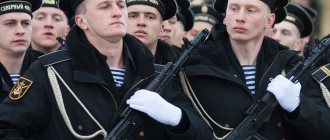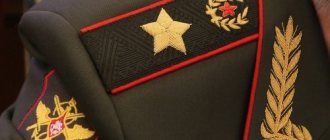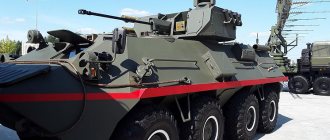Alena ARZAMASSKAYA (?-1670)
Companion of Stepan Razin.
While still young, she was widowed and became a nun. In 1669, when the peasant uprising of Stepan Razin began, Alena left the monastery and gathered her own detachment of 300-400 fighters. Having defeated the troops of the royal governor, Alena stormed the city of Temnikov, which she ruled for more than two months. In the end, her army was attacked by the royal troops and defeated, Alena herself was captured and was executed by burning - as a robber and heretic suspected of witchcraft.
Laskarina BUBULINA (1771-1825)
Admiral of the Russian Fleet.
Laskarina Bubulina
The widow of the Greek merchant Dimitrios Bouboulis, who died at the hands of Algerian pirates. Having received a rich inheritance, she built her own navy (the flagship was the corvette Agamemnon) and began a war against pirates and the Ottoman Empire. In addition, it maintained the Filiki Eteria partisan army, which fought for the independence of Greece from Turkey, and entered into a military alliance with Russia. Emperor Alexander I, admiring her courage, awarded Bubulina the rank of admiral of the Russian Fleet.
Major General Rossiyana Markovskaya
She received a press secretary position in the Ministry of Defense immediately after graduating from the Far Eastern Federal Institute at the age of 26.
Major General Rossiyana Markovskaya. Photo pikabu.ru
For her pretty, almost model-like appearance - with a height of 175 cm, the girl weighs about 60 kg - Russian Markovskaya was awarded the title “Nyasha the Defender”.
Russian Markovskaya
Original (
_rossiyana_
)
When asked whether she has the rank of major general, which she was awarded in 2022, the girl sweetly replies that she is not a military personnel. It’s as if there are no civilian positions in the Ministry of Defense, the ranks of which are equivalent.
Major General Rossiyana Markovskaya. Photo mk.ru
Vasilisa KOZHINA (1780-1840)
Heroine of the Patriotic War of 1812.
Vasilisa Kozhina
During the French invasion in 1812, Vasilisa Kozhina organized a partisan detachment of teenagers and women in the Sychevsky district of the Smolensk province. All the partisans' weapons consisted of pitchforks, spears and scythes. During the retreat of Napoleonic troops from Moscow, partisans attacked French troops, captured prisoners and handed them over to Russian troops. For this feat, Vasilisa Kozhina was awarded a medal, monetary benefits and the right to make personal petitions on any topic from the emperor.
Nadezhda DUROVA (1783-1866)
Cavalry maiden, first female officer.
Nadezhda Durova
The daughter of a hussar captain, she was accustomed to military service from a young age. In 1806, due to family troubles (Durova had been married since she was 18 and had two sons), she ran away from home and, dressing in a man’s dress, joined the Uhlan regiment. She took part in several battles, was awarded the St. George Cross and promoted to officer. The deception was exposed, but Alexander I allowed her to remain in the army. During the War of 1812, she served as an orderly for Kutuzov and took part in the Battle of Borodino.
Reasons for dismissal from contract service
Dismissal from the army can occur either at will or for certain reasons. Among the most common are:
- Rearrangement of personnel;
- Unfair performance of official duties;
- Making any changes to the personnel structure.
Women quit at their own request for the following reasons:
- If there is a minor child;
- According to medical indicators;
- Due to recognition as unfit for military service.
Thus, we told where and who girls serve in the Russian army. Today there is a large selection of specialties available to them. Some professions are not entirely feminine in nature, but, nevertheless, this does not prevent girls from performing well in such places as special forces, reconnaissance, working as a driver and others. Not every girl succeeds in qualifying for these specialties. Most often, in the military sphere, women are employed as a cook, accountant, economist, translator, but some even manage to rise to the rank of officer. It all depends on the ambitions of a particular girl in uniform.
Kharitina KOROTKEVICH (1882-1904)
Heroine of the defense of Port Arthur.
Kharitina Korotkevich
During the Russo-Japanese War, her husband was wounded, and Kharitina went to Port Arthur. In order to pass through military posts that did not allow women and civilians through, she disguised herself as a railway employee, and then, under the name Khariton Korotkevich, became a private in a rifle regiment. When the deception was revealed, Kharitina became a nurse, but Colonel Gusakovsky, admiring her courage, took Kharitina as an adjutant. During the battles for Port Arthur, she fought back until the last moment from the advancing Japanese, but was killed
Tips for girls
Inna Ananenkova gives advice to girls who want to make a career in the army.
Those who have a technical or medical specialty have a chance to enter military service. The main areas where women are taken are communications and medicine, as mentioned.
Some girls dream of serving in the army since childhood. Photo: AiF/Vitaly Kolbasin
“It’s not difficult to join the army, but to serve in it, you need to be able to overcome difficulties, sacrifice yourself, and some civic benefits,” says Inna. “Only an ideological person, for whom patriotism is not an empty word, can live life in the army. And the person who came to the army to earn money or to get some rest is unlikely to stay in the Armed Forces.”
...February 23, Defender of the Fatherland Day, Inna Ananenkova will spend at her workplace. In the Gorky Park of Rostov-on-Don, the selection point for military service under a contract in the Rostov region will take part in a military-patriotic event, which is traditionally held by the Southern Military District. Major Ananenkova will accept candidates wishing to enroll in military service under a contract.
Maria BOCHKAREVA (1889-1920)
Creator of the first "women's death battalion".
Maria Bochkareva
At the age of 15, she ran away from home to marry her beloved. The marriage did not work out, and after the outbreak of World War I, Bochkareva wrote a letter to the Tsar asking that she be allowed to join the army. The Tsar allowed, and soon she was awarded the St. George Cross for bravery in battle. In 1917, she became the commander of the women's death battalion, which defended the Winter Palace during the October Revolution. She took part in the Civil War and was shot by the Bolsheviks.
Women in the Russian Army
March 8 is a reason to put aside debates about military conflicts and terrorism, new weapons and other hot topics. It’s more logical on this day to talk about the fair half of the Russian Armed Forces. The modern Russian army has about 45 thousand female contract workers, who perform their military duty on an equal basis with the stronger sex. The total number of girls who are in one way or another related to the Russian army has exceeded 326 thousand. It is significant that this figure is only increasing every year: military service is becoming more and more attractive for our girls.
The RF Armed Forces provide ladies with over 150 different specialties. We must understand that the army is not only trenches, dirt, tanks and weapons. Most of the girls are employed in communications units, specialized educational institutions, medical personnel, food and clothing services. It is difficult to overestimate their merits; a recent example is the provision of medical care to the civilian population of Syria. Fearless women are ready to go to hot spots and perform the most difficult tasks on an equal basis with men.
It is worth noting a serious increase in the number of people wishing to enroll in educational institutions of the Ministry of Defense. Popular are the “Naval Academies” in St. Petersburg and Kaliningrad, VVDKU in Ryazan, VA VKO in Tver, the capital’s Military University and many other branches. A graduate of one of these institutions ultimately receives a diploma and a military rank, which opens the way for her to join military structures.
If a girl really can’t wait to join the ranks of the defenders of the Motherland, there is always the opportunity to serve under a contract. Here, of course, you need to take into account some requirements: age from 18 to 40 years, absence of health problems, good physical fitness. And a specialty in demand in the Armed Forces will, of course, be a definite plus.
Each candidate must come to the selection point, have a conversation with a special inspector and pass sports standards on three points: strength, speed and endurance. Nothing unusual - abdominal exercises, shuttle running and kilometer cross-country. Standards vary depending on age. Failed one of the three tests? It doesn’t matter, in a month the girl will have the opportunity to take the exam again. If successful, she comes with all the necessary documents and certificates to the military registration and enlistment office, where the question of the candidate’s suitability for contract service is decided by voting.
The desire of true patriots to serve for the good of the Motherland does not go unnoticed by the state, which takes great care of the representatives of the RF Armed Forces. Military service is guaranteed stability. There can be no problems with paying wages, the terms of the Labor Code are fully complied with, and there are good career opportunities. You must admit that in civilian life it is not always easy to find a job with such basic conditions.
Another important point is social security. Absolutely all military personnel of the Russian army are provided with a full social package: treatment at the expense of the state (military medicine is a very high level), serious benefits for travel, housing. There are 12 more attractive points, but these three stand out.
There are a lot of advantages: hassle-free maternity leave (your job will definitely not run away from you), a decent pension, and for some it’s an opportunity to be close to your military husband. In recent years, work in the Armed Forces has become extremely prestigious. And patriotic sentiments in the country awakened greatly, and the Russian army itself was brought into complete order.
Getting into the army is not so difficult, but every woman should understand what difficulties she may encounter in a new workplace. Constant moving, business trips, being on duty... The career is attractive, but did anyone say that it would be easy in this area? The security of the state is at stake. People who come here are not for the sake of earning money and not for those for whom patriotism is something alien. There is no place for this in the army; here the priority idea should remain protecting the interests of one’s country. If the candidate takes such nuances into account, problems will not arise in the future.
On International Women's Day, I would like to congratulate all representatives of the fair sex and thank the military girls for trying not to be inferior to men in this field. Every year Russian women make an increasingly significant contribution to the security of our Motherland. And the stereotype “the army is not a woman’s business” has already been completely destroyed.
Anna STESHENKO (1897-1941)
Prototype of Anka the machine gunner.
Anna Steshenko
In 1915, Anna Steshenko went as a nurse to the Turkish front, where she met orderly Dmitry Furmanov, her future husband and commissar of the 25th Infantry Division, commanded by V.I. Chapaev. In the division, she served in the infirmary, but during one of the battles she had to replace a wounded machine gunner on the front line. This incident was later described by Furmanov, and the Vasiliev brothers turned the nurse into the dashing machine gunner Anka - a sex symbol for millions of Soviet schoolchildren.
Nina PETROVA (1893-1945)
Sniper, full holder of the Order of Glory.
Nina Petrova
Nina Petrova took the Winter Palace in her youth, became the USSR champion in bullet sports and ball hockey, worked as an instructor in the Voroshilov shooters’ club, fought as a sniper in the Finnish War, by the beginning of the Great Patriotic War she was already 48 years old, but Nina Pavlovna volunteered for the front , becoming a lone sniper, and later - the commander of a sniper school. On her personal account there were 122 killed enemy soldiers and officers, and she personally captured three more.
Army everyday life in a women's company
- Climb! - the sergeant major shouts in a bad voice to the sleeping female platoon. “So-a-a-avarisch foreman,” draws a sleepy voice from the bed, “well, why rejoice so loudly, they could have told us everything in detail later,” muffled laughter can be heard in the barracks. - Come out and build! - the foreman shouts angrily. - Oh, what are we going to build? BAM? - asks the same voice. - So, Petrova, don’t awaken the beast in me. - Interesting, it means that waking us up is in the order of things, but your beast is not! You are too protective of him. - Two outfits out of turn! To clean the toilet! — Oh, I love the outfits: from Gucci and Versace. What does this have to do with your toilet? Or maybe it weakens you? Poor…
The foreman's face twisted with rage. He jumps out of the barracks as if scalded. The girls slowly swim out behind him like ducks. They are under construction. “Private Petrova,” mutters the sergeant major. - Is that just a private? — the girl answers loudly. “And in civilian life they told me that I was out of the ordinary.” - That's it, Petrova! Get out of line! - shouts the angry foreman. - Step forward! Take a lying position! - Come on, Comrade Sergeant Major, I just got up. - Private, I’m not inviting you to rest, lie down! - What, are we going to be right here? - Right here! Be silent! “Comrade Sergeant Major,” Petrova says in a whining voice, “I can’t do it today, I have women’s business to attend to.” - Private Petrova, there are no women's and men's affairs in the army. Our job is one thing - to defend the Motherland. - Oh, I know, sergeant major. Always ready! - Then lie down.
The platoon chuckles in unison. The sergeant-major wearily commands: “Get into formation!” And one, two, three! - Comrade Sergeant Major, is it difficult to count to four? - Petrova, keep your foot down, less talking! - Ty, why keep her? I bet she won't run away alone. - Put your feet up! - the foreman barks. - Yes sir! I can’t, Comrade Sergeant Major! - Why? “The walking butt in front of me is bothering me.” “Petrova,” the foreman sighs. — Everyone knows about a bad dancer, but what prevents a bad dancer? “If you press tightly against your partner, then nothing will interfere with both of them.” - Yes, Petrova. There was a sewer break in our unit, you’ll be in the front row to clean it up! - Certainly! The kind of grub they feed the unfortunate privates makes even the sewers sick. - Petrova, don’t be a clown! And someday you will become a sergeant major.
Army everyday life in a women's company - What do you mean! God forbid! “Private, the bad soldier is the one who...” “Doesn’t dream of becoming a general’s wife!” the girl reported to the sound of friendly laughter. - Company! - The sergeant major waved his hand decisively. - Have a drink! “Our company sergeant-major has orders...” “Yeah,” Petrova puts in her two cents, “and that means everything is ahead for me?” - What do you have ahead of you, Petrova? “What’s ahead of me is clearly visible from afar, and your drill song is too erotic.” -Which one do you like best? - Well, this is a good song: I want to wash ashore, but the nails won’t let me. “Don’t worry, Private Petrova, I’ll find a bigger nail for you.” Left! Left! One-two-three! So, Petrova, don’t you know where your left is? “Do you see my prominent bust, Sergeant Major?” - And what? “But because of him I can’t see my legs.” - Well, why did you, Petrova, join the army with such an “outstanding” bust? - What remains to be done? All the men, some into politics, some into bandits. And the generals are there too. But someone needs to defend the Motherland with their breasts! So I decided that with such a bust it would be dishonest to sit in the rear. “I don’t know what they’re thinking up there, I wouldn’t let women close to the army.” - Oh, poor thing, are you no longer interested in women? - Six days lips! A week! - Lips?! Comrade Sergeant Major, do you prefer unconventional sex? “I didn’t understand gay people before.” Now, having talked with a battalion of women, I am beginning to understand homosexuals. —What were you in civilian life? “In civilian life I was a man,” sighs the foreman. - I'm tired of everything, I'm resigning! “You shouldn’t shoot from the shoulder, sergeant major.” It’s difficult with us, you can’t argue. But we all love you. After a month or two with us, you will honestly say: I was always on edge! “Okay, we’ve persuaded you,” the foreman breaks into a smile. - Come on, start singing: “Soldiers, brave girls, where are your boys?..”
And the company picks up with lightning speed: “Our guys are mowing down everything from the army, that’s where our guys are!”
Marina RASKOVA (1912-1943)
Major, commander of the Night Witches air regiment.
Marina Raskova
Photo: RIA NOVOSTI
She received the title of Hero of the Soviet Union in 1938 for a record-breaking flight on the ANT-37 Rodina aircraft on the Moscow-Far East route. During the Great Patriotic War, Raskova, using her personal acquaintance with Stalin, obtained permission to form female aviation combat units and became the organizer of three attack air regiments, including the 588th night bomber, which was called “Night Witches”. Died in battle.
Women's Troops in the history of the Russian army.
The history of the participation of Russian women in military operations goes back to the era of Ancient Rus'. Princess Olga followed Prince Igor on his campaigns and later herself dealt with issues of military policy. After the siege of Constantinople in 626, at the site of the battle, according to Byzantine chroniclers, the bodies of women in armor were found. And the Rostov princesses took a direct part in the battle on the Kulikovo Field.
But those events lie so deep in the centuries that the line between fact and legend becomes too thin. Therefore, in this article we will talk about not so long ago, namely, the period from the 18th to the mid-20th century, and about women, one way or another, who served in the Russian army at that time.
XVIII – XIX centuries
The first document in Russia regulating the service of women in the army was the Military Regulations of 1716
. True, it was only about the service of civilian women in field hospitals.
One of the first trained female military units was formed in 1787
by Prince G. A. Potemkin (1739 – 1791), especially for the arrival of Catherine the Great in Tavria, an “Amazonian cavalry company” under the command, formally, of the first female officer in the history of the Russian Empire, cavalry captain
E. I. Sarandova
(1755 – 1849). However, despite the fact that all the women were trained in horse riding and shooting, the company was only decorative in nature and existed for about 2 months.
The second contender for the title of the first female officer appeared only during the Patriotic War of 1812. We are, of course, talking about N.A. Durova
(1783 – 1866).
In 1806
, she first, dressed in men's clothing, ran away from her husband and son along with the Cossack regiment. Then, leaving the Cossacks, she called herself Alexander Durov (according to another version, Sokolov) and asked to serve in the Horse-Polish Uhlan Regiment.
During 1807, Durova took part in a number of major battles: at Guttstad (May 23 - 28), Heilsberg (May 29), Friedland (June 2). She was soon discovered, but forgiven by Emperor Alexander I. She was allowed to remain in service, although still under a man's name - Alexander Andreevich Alexandrov. She served in the Mariupol Hussar and Lithuanian Uhlan regiments. During the Patriotic War, Durova took part, among other things, in the Battle of Borodino. She resigned only in 1816, at the request of her father. At that time, she already had the rank of headquarters captain.
The story of the third contender for the championship is very similar to the story of the “cavalry maiden”, but much less known. A. M. Tikhomirova
, like Durova, grew up in a military family, and after the death of her parents, hiding behind the name of her deceased brother, she entered the service. This was in the 1790s. In 1805, two years before Durova, she received the officer rank of captain. And in 1807 she died in a “meat grinder” at Preussisch-Eylau.
But even taking into account Tikhomirova’s tragedy, these stories are still covered with some kind of romantic flair. Which will completely evaporate in the 20th century.
First World War and Civil War
Although it all started in a similar spirit. The archives of the First World War are rich in letters from girls asking to be accepted into the army. Schoolgirls tried to run to the front. Girls posing as men served and received awards. Order of St. George were, for example, noted:
- E.K. Tsebrzhinskaya
(1890 – 1957) – paramedic of the 186th Aslanduz infantry regiment “Evdokim (Gleb) Tsetnersky”. - Olga Shidlovskaya
- hussar of the 4th Mariupol regiment "Oleg Shidlovsky". - A. T. Palshina-Pridatko
(1897 - 1992) - “Anton Palshin”, twice Knight of St. George, cavalry officer.
IN 1917
year, when the troops were demoralized,
women’s “death battalions”
and there was no talk of any “dressing up” here.
By October there were already 3 such battalions: St. Petersburg, Moscow and Kuban. However, only the 1st, under the command of M. L. Bochkareva
(1889 - 1920), took direct part in the hostilities. already in August, after significant losses in Bochkareva’s battalion (30 killed, about 70 wounded), an order was received to use the detachments only for auxiliary purposes.
In addition to the 3 battalions that visited the front, the following were formed:
- Women's naval team in Oranienbaum;
- Cavalry 1st Petrograd Battalion of the Women's Military Union;
- Minsk separate guard squad;
- A number of women's communications teams in various cities.
The participation of women in the war as nurses is a topic for a separate story. Let us only mention that the imperial family set an example for them - Alexandra Feodorovna and her eldest daughters, Olga and Tatyana, carried out real service in hospitals, having completed Red Cross courses.
Women took an active part in the fighting of the Civil War, moreover, on July 10, 1918
g. The V All-Russian Congress of Soviets adopted the Constitution of the RSFSR and the resolution “On the organization of the Red Army,” in which women were named subject to universal military service.
The Second World War
From the very beginning of the Great Patriotic War, women voluntarily went to the front. During certain periods, women made up up to 50% of volunteers. Women with special technical, medical and veterinary training were subject to mobilization.
In November 1942 the following were formed:
- separate women's volunteer rifle brigade;
- 1st separate women's reserve rifle regiment;
- a number of women's aviation regiments.
Women's mobilization reached its maximum number during the difficult period of 1942–1943.
In April 1942
100 thousand girls were drafted into the air defense troops, in November - 50 thousand. In total, during the Great Patriotic War, in different periods,
from 600 thousand to 1 million women visited the front.
Against the backdrop of such an increase in the number of women in the troops, adjustments were made to women's uniforms and allowances.
Women made up 46% of front-line doctors.
To roughly imagine what roles women played in the war, let’s look at the group affiliation of patients in the women’s hospital of the Leningrad Front:
- 39.2% – medical workers;
- 24.7% – signalmen;
- 13.8% – miners;
- 7.4% – cooks;
- 4.3% – ordinary riflemen;
- 1.8% - snipers;
- 1.5% – scouts;
- 1.3% – traffic controllers;
- 1.2% are anti-aircraft gunners.
If we talk about specific cases, here they are:
- L. M. Pavlyuchenko
(1916 - 1974) -
sniper, Hero of the Soviet Union.
By 1942, when Lyudmila was seriously wounded and sent to the rear, her sniper “account” included
309 killed enemy soldiers. - M. N. Tsukanova
(1923 – 1945) –
nurse
,
Hero of the Soviet Union (posthumously).
In August 1945, when hostilities with Japan were still ongoing, during the fighting in the port of Seishin (Korea), Maria carried more than 50 people from the battlefield, and then, as part of a covering group, with machine-gun fire provided the retreating company with the opportunity to retreat. Died after torture in Japanese captivity. - A. M. Shulezhko
(1903 – 1994) –
nurse, ranked among the Righteous Among the Nations.
During the war years, she hid Jewish children in an orphanage, hiding their origin. Managed to save children during the evacuation of the orphanage to the West. - L. V. Litvyak
(1921 - 1943) -
fighter pilot, Hero of the Soviet Union (posthumously).
12 victories in air battles during the period 1942 - 1943. She did not return from a combat mission on August 1, 1943. - A. A. Biseniek
(1899 - 1943) - underground worker,
Hero of the Soviet Union (posthumously).
She was an active participant in the underground movement in the occupied city of Dno. She transmitted intelligence data to the partisans and participated in the development of sabotage operations. Shot in the Zapolyansky death camp.
These are only 5 stories out of hundreds of thousands, even out of a million.
96 women received the title of Hero of the Soviet Union
, 4 managed to become full holders of the Order of Glory. In total, more than 150 thousand women were awarded military decorations.











